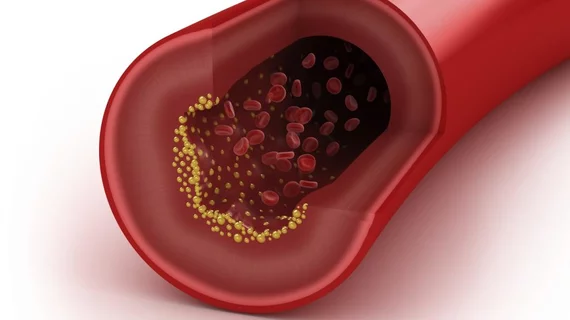CT scans reveal link between low skeletal muscle mass and coronary atherosclerosis
Patients with low skeletal muscle may face an increased risk of experiencing cardiovascular events such as atherosclerosis, according to research published this week in Clinical Radiology.
Coronary artery disease (CAD) remains the leading cause of death worldwide. This, combined with the wave of obesity, which is a known precursor for coronary disease, pushed researchers to investigate the relationship between fat distribution patterns and CAD. They also noted that data pertaining to coronary atherosclerotic plaques and stenosis in conjunction with low muscle mass or low skeletal muscle density (SMD) remains limited.
“Several studies have shown that low skeletal muscle mass was a prognostic factor for major adverse cardiovascular events in the general population, patients with coronary heart disease, or patients with chronic kidney disease,” K. Tang, with Department of Nuclear Medicine at The First Affiliated Hospital of Wenzhou Medical University in China and co-authors wrote.
For this research, the team retrospectively analyzed findings from 243 patients who had undergone an unenhanced CT scan and coronary CT angiography (CCTA) as part of a general health exam.
The results of their work showed a notable relationship between low skeletal muscle area index and atherosclerotic plaque, total significant stenosis and significant stenosis caused by calcified or mixed plaques. Furthermore, calcified plaque and non-calcified plaque were shown to be independently linked with SMI.
Experts added that these findings could aid in the early diagnosis of CAD, which could result in more effective preventative therapies, rather than just symptom management.
“The study was conducted in asymptomatic adults, and the findings may provide indicators for early identification of individuals at high risk of coronary atherosclerosis,” Tang et al. noted.
You can read the detailed study in Clinical Radiology.

